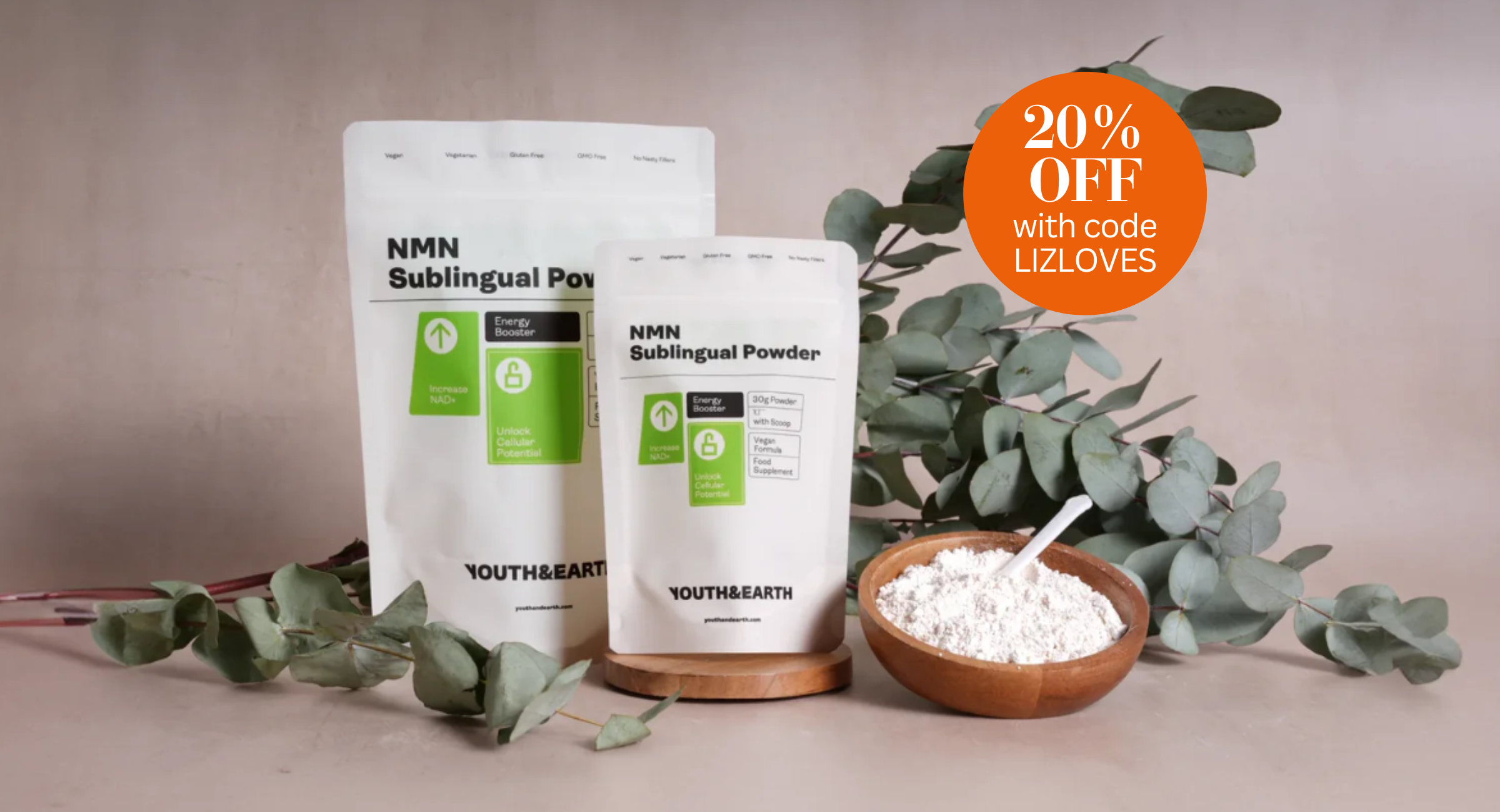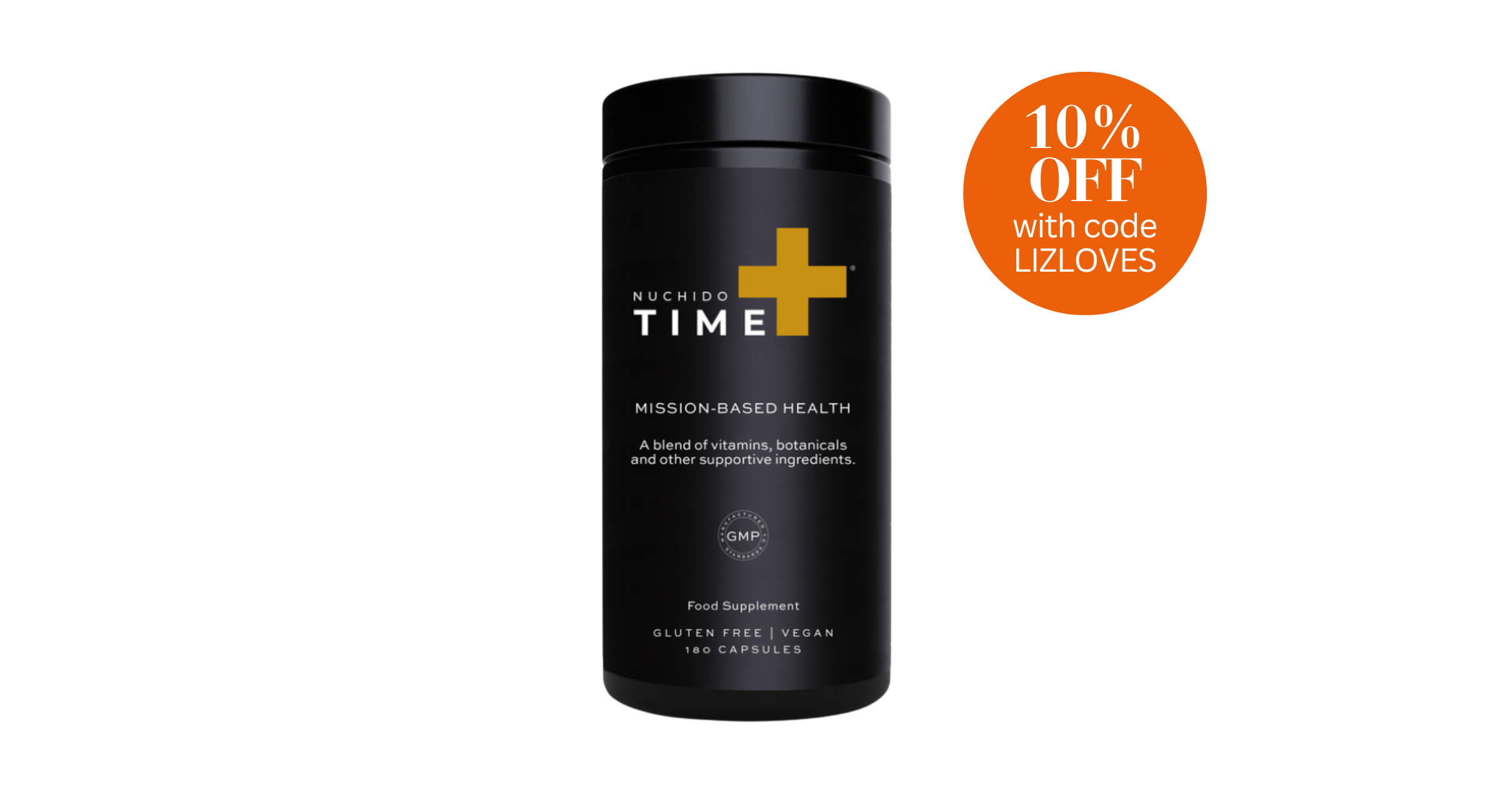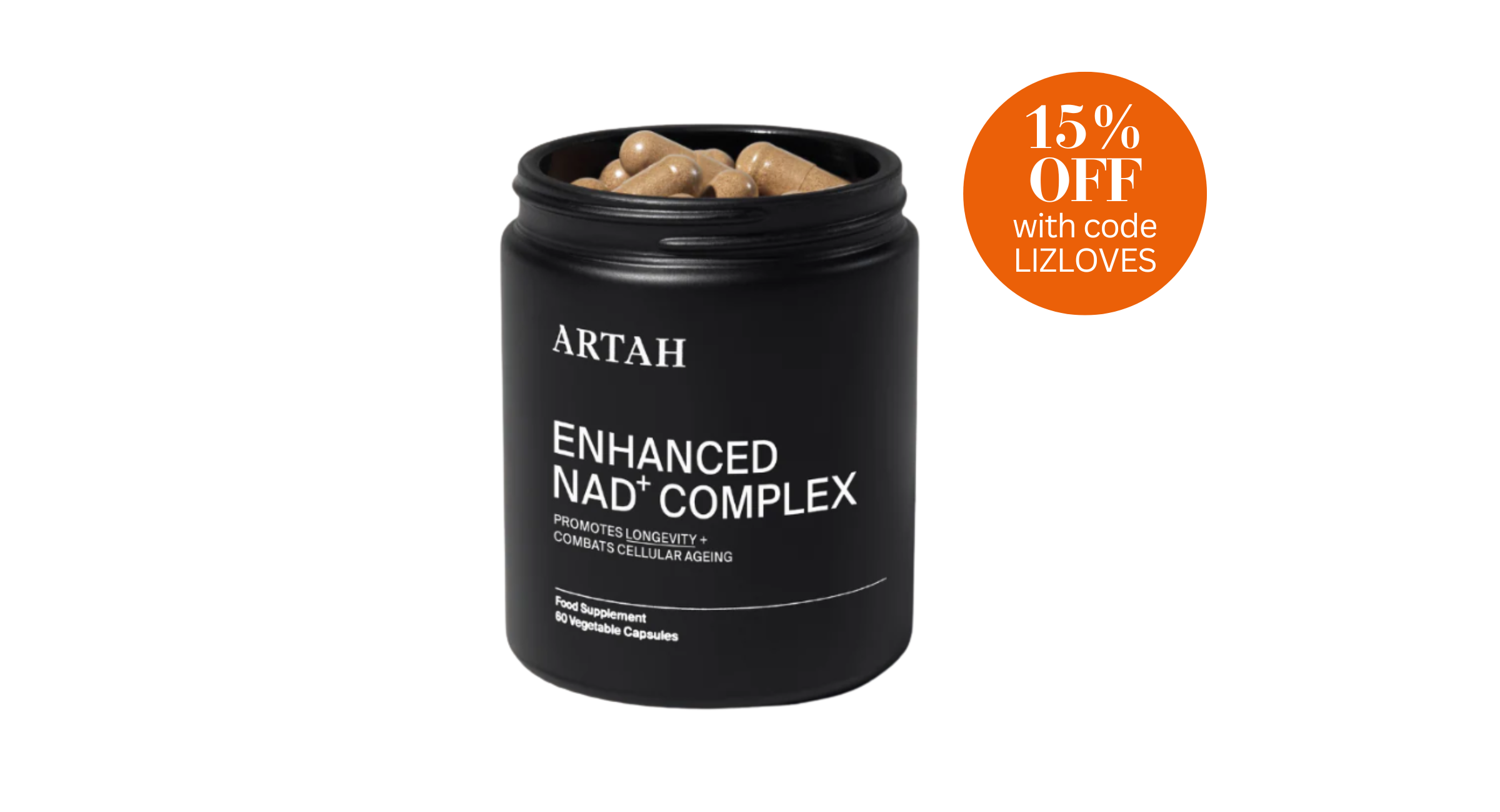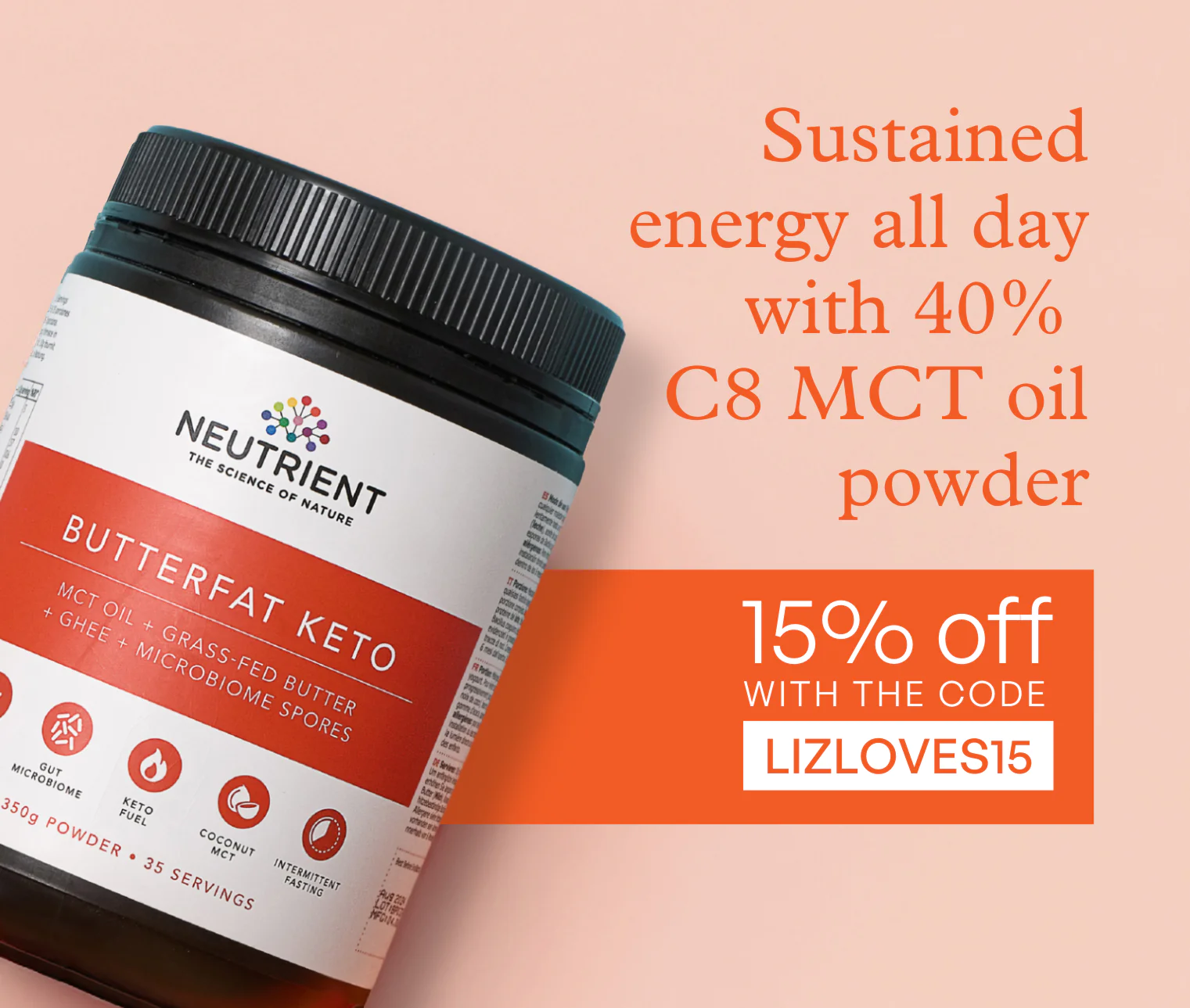Women's health
Is NMN safe to take? Everything you need to know about this longevity supplement
NMN, short for nicotinamide mononucleotide, first emerged as the go-to supplement among wellness enthusiasts around a decade ago, due to its potential to support cellular health and promote longevity.
“Naturally found in our bodies and in small amounts in foods like cabbage and avocado, NMN plays a crucial role in helping our cells produce NAD+ (nicotinamide adenine dinucleotide),” says molecular biologist and cellular ageing expert Dr Nichola Conlon.
“Think of NAD+ as the healthy ageing molecule, it powers all the important cellular processes that keep us functioning optimally. It helps us produce physical and mental energy and it powers cellular repair and regeneration.”
The rise of NMN
With promising study results, NMN quickly gained popularity in the wellness world, leading to widespread availability of supplements containing the ingredient. Praised for its potential to address a range of age-related concerns, from diabetes and osteoarthritis to cognitive decline, the global market for NMN was valued at approximately £200 million in 2020 and is projected to reach around £307 million by 2027.
However, NMN’s seemingly unstoppable rise was recently checked by the USA’s influential Food and Drug Administration (FDA), which restricted its sale as a dietary supplement, citing the need for further testing to validate its health claims with robust scientific evidence.
While the regulatory landscape in the US remains unclear, NMN supplements continue to be widely available in the UK and much of Europe, leading to a growing sense of legal uncertainty surrounding the ingredient.
So, should NMN be embraced or avoided? Here’s all the information you need.
What is the role of NMN in the body?
To understand the impact of NMN, we first need to look at NAD.
“NAD is crucial for energy production, DNA repair and regulating cellular pathways through its partnership with sirtuins, which are the proteins that control nearly all our body’s cellular functions,” says Dr Sandra Kaufmann, longevity expert and author of The Kaufmann Protocol: How We Age and How to Stop It.
As we age, NAD production decreases. “By our 40s, we have significantly less, despite needing more – and this imbalance contributes to the ageing process,” Sandra adds.
Replenishing NAD is challenging as the molecule cannot enter most cells.
“This is where NAD precursors like NMN come in,” continues Sandra. “NMN is easily absorbed by the body and helps regenerate NAD. This process boosts NAD levels, which is vital for supporting cellular health.”
What are the benefits of NMN supplements?
NMN supplements are touted as powerful aids in combatting signs of ageing and boosting the body’s energy production.
“NMN supplements deliver a wide range of benefits by addressing the natural decline in NAD levels that occur with age,” says Dr Andrew Salzman, a Harvard Medical School trained physician and biomedical expert. “NAD is not just about energy production; it plays a central role in reducing inflammation, regulating pain and supporting the repair and resilience of cells. By restoring NAD levels, NMN tackles the root causes of age-related challenges.”
A study published in the Integrative Medicine Journal in 2020, showed that NMN is rapidly absorbed and converted to NAD, increasing biosynthesis and delivering benefits such as reducing inflammation, enhancing insulin action, improving mitochondrial function and supporting brain health.
Another study by Washington University School of Medicine examined the impact of taking 250mg of NMN daily for 10 weeks in overweight and obese post-menopausal women with pre-diabetes. The results showed that NMN supplements improved insulin sensitivity and activated genes linked to muscle repair and remodelling.
“In the short term, NMN supplementation can reduce inflammation, boost energy, accelerate recovery and improve physical performance,” shares Andrew. “Over a period of months, individuals often report sharper cognition, improved sleep quality, increased insulin sensitivity, lower blood pressure and a strengthened immune system.
“In the long term, taking NMN consistently is reported to support metabolism, protect brain health, strengthen bones, and even improve skin and hair – making it a powerful tool for optimising health span and boosting overall vitality.”
What is the legal status of NMN in the USA?
Despite their popularity, NMN supplements have faced regulatory challenges in the USA. In November 2022, the FDA concluded that NMN no longer qualifies as a dietary supplement because it is being investigated as a pharmaceutical drug.
However, this was soon met with opposition by the natural products industry accusing the FDA of favouring drugs companies over businesses selling affordable supplements.
In August 2024, the Natural Products Association (NPA) filed a lawsuit to reverse this decision. A significant development came in November 2024, when a federal court ruled in favour of the NPA. The court stopped the FDA’s enforcement actions against NMN and ordered a review of NPA’s citizen petition to clarify NMN’s legal status.
NMN has temporarily been allowed back on the market while the FDA evaluates its position. “We don’t see how NMN can’t be a dietary supplement. It naturally exists in our diet and it’s an essential nutrient that we need every day,” says Dr Daniel Fabricant, NPA President and CEO. “Classifying it solely as a pharmaceutical rather than a consumer health product seems like a step backward, not forward.”
Is it still safe to take NMN supplements?
The FDA’s recent decision has sparked confusion, with many consumers believing NMN is banned and questioning its safety.
“NMN is neither dangerous nor banned,” says Baran Dilaver – co-founder of NMN supplement brand, Wonderfeel. “On the contrary, it is an incredibly beneficial molecule that has demonstrated a strong safety profile based on current research and practical use by millions of consumers.”
Sandra agrees. “The argument that it is a supplement remains valid in my opinion, as we all carry a significant quantity of natural NMN in our bodies, and therefore it is not a novel, invented medication,” she says. Sandra also says that there is no reason to have concern in the UK. “The ban is a financial and political issue versus an actual health concern issue,” she says.
“There is no real risk to taking NMN, with the possible exception of exacerbating cancer; however, this is true with any longevity supplement. All of the agents we generally put in this arena improve and optimise all cells, including those that we really do not want to improve. Therefore, NMN reduces the risk of getting cancer, but once someone has cancer, it can make it worse,” warns Sandra.
What the science says
In a clinical toxicity published in the Endocrine Journal, participants took daily doses of 100, 250, or 500 mg over a single administration period (5 hours observation), with no adverse effects. Key health indicators, such as heart rate and blood pressure remained stable, supporting NMN’s safety with short-term use.
Larger-scale, longer-term human studies are currently underway, and ultimately, these will be necessary to fully understand the effects of NMN supplements – a process that may take several decades.
Until then, perhaps the most salient advice comes from Nichola. She warns against relying on NMN as a magic bullet to combat ageing.
“NAD+ decline is a complex issue that cannot be fixed by just taking a single ingredient such as NMN,” she says. “Rather we need to address each part of the NAD+ production pathway that becomes dysfunctional during ageing and restore its functionality.”
What is the future of NMN?
“I think it will be difficult for the FDA to reverse NMN’s market presence and I expect that we’re going to see global stability on the market, which was part of our goal of the lawsuit – to stabilise the economy around NMN,” says Daniel. “Safety has never been a question even the FDA has said on record that this is not a safety issue.
“I think the notion that natural products exist in nature and in our diet is important. The idea that once something is classified as a drug, it can never return to the consumer side is problematic at best. People are actively looking for ways to stay healthier, and trust in the mainstream medical community is declining. Many don’t want to rely on prescriptions; they want the ability to take control of their own health. I think that’s the bigger philosophical issue that needs to be addressed here.”
It is hoped that legal uncertainties will be cleared up by the end of July, but nevertheless, NMN should be viewed as an element in a broader healthy ageing strategy rather than a standalone cure-all.
Our pick of the best NMN supplements
Keen to try NMN? Read on for our product picks.
Youth & Earth NMN Sublingual Powder

This Liz-approved supplement goes under the tongue for enhanced absorption. Take each morning to help support energy levels and ease brain fog.
Nuchido TIME+

Replenish NAD+ levels to keep cells at their optimum with Nuchido TIME+, a supplement containing botanicals and vitamins.
ARTAH Enhanced NAD+ Complex

Capsules containing a combination of NAD+ precursors and targeted phytonutrients. This multi-action formula boosts NAD+ and activates key longevity processes to support cellular health.
Words: Anjana Gosai





